European Union Empowers Families in Pakistan to Rebuild Lives After Devasting Floods in 2022
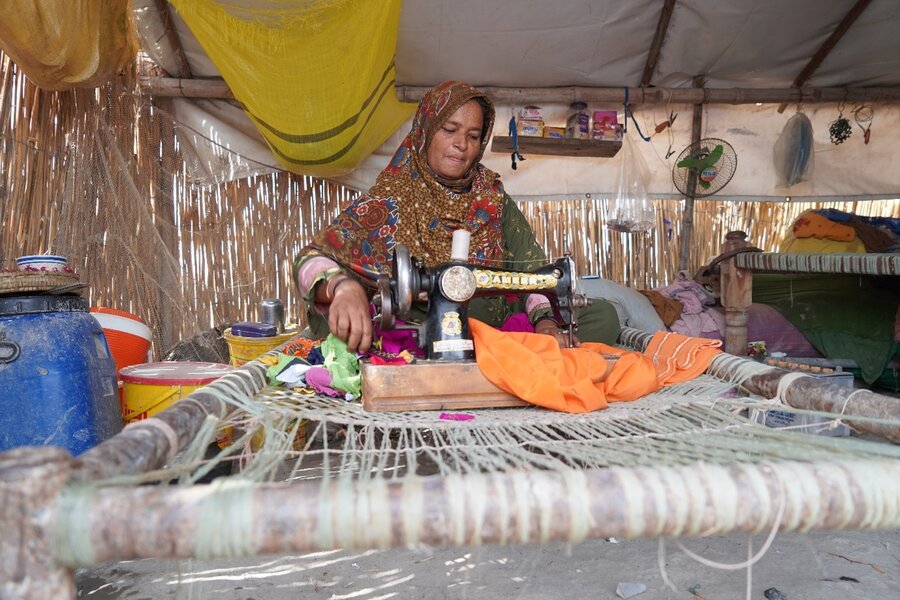
In the heart of her village in Pakistan’s southern province of Sindh, Husan once lived in a sturdy two-room house, with her sons, daughters-in-law, and grandchildren.
Then, a year and a half ago, one of the biggest floods to ever hit the country in recent years turned everything upside down. They not only swept away her home but also her livelihood and any sense of normalcy.
“The floods damaged the entire community of 40 families,” says Husan. “We lost everything from our houses to our possessions. I couldn't save anything from the floods except my life.”
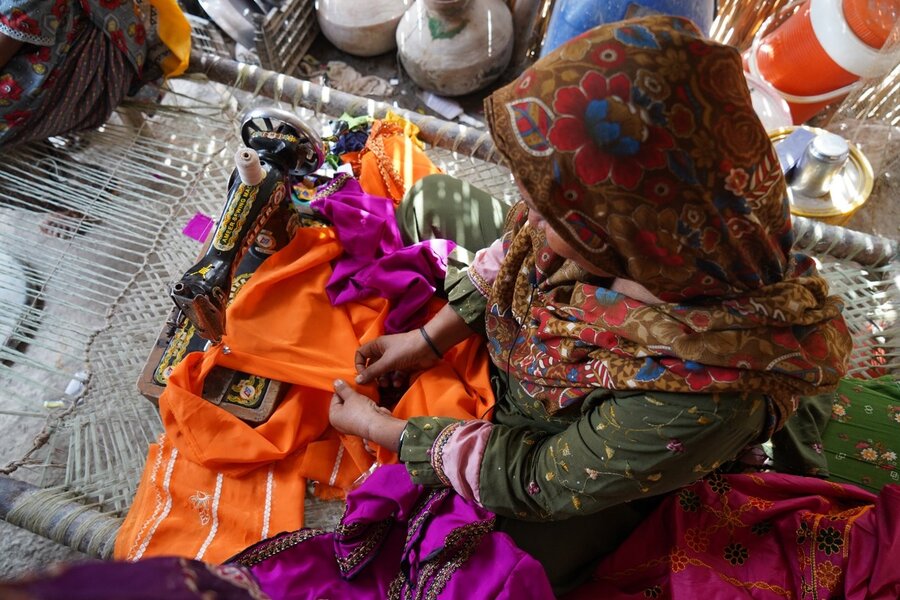
Following the floods, they were relocated to a Government-provided temporary shelter. After four months when the floodwaters receded, Husan’s family managed to come back to their village. Having next to nothing left, they have since lived in a makeshift tent they put together. The tent has now been their home for more than a year.
“Living in a tent has become tiresome,” she says. “We lack a proper kitchen space. We have to utilize what we have a makeshift washroom and fetch water from a distant source, as the water we currently use is not suitable for drinking.”
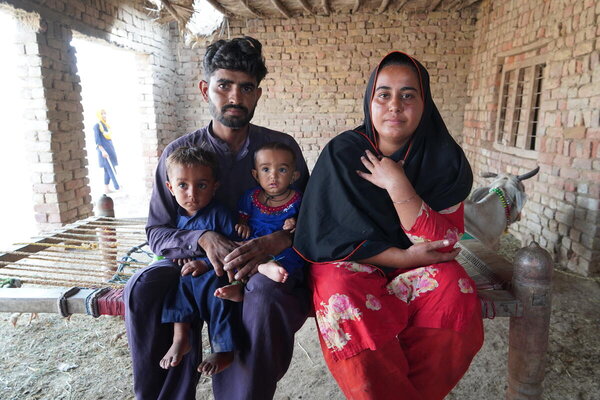
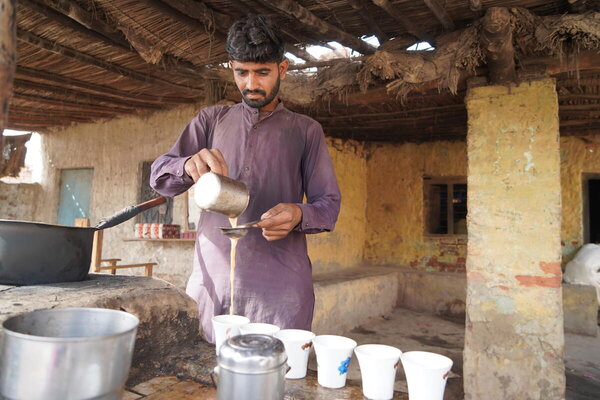
More than 1,700 lost their lives in the floods which affected 33 million people in Pakistan. Sindh, the heart of the Indus River basin, was the worst-affected province, accounting for nearly 70 percent of total losses and damage.
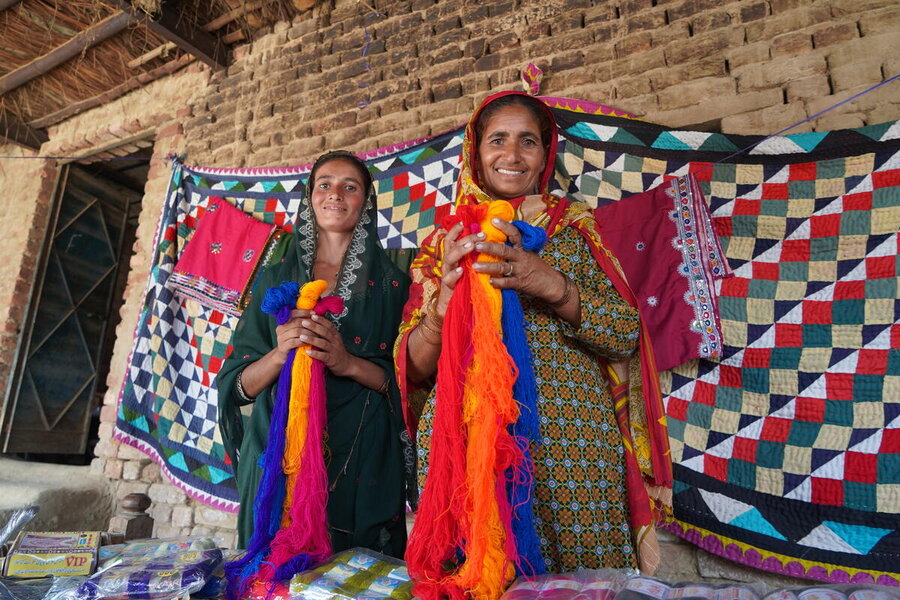
A year and a half on, humanitarian needs in flood-affected areas persist – exacerbated by the country’s ongoing economic uncertainty and a nutrition crisis. The Integrated Food Security Phase Classification (IPC) estimates 11.8 million people continue to face 'crisis' or higher levels of food insecurity due to the 2022 floods.
In Jamshoro, Husan’s hometown, the World Food Programme (WFP) started its emergency flood response in August 2022 with general food distribution.
That was followed up with cash assistance, providing a lifeline to the communities worst hit by floods. Families were able to buy enough food to secure two meals per day and with the little money they had left over, they could cover other critical needs such as medical expenses.
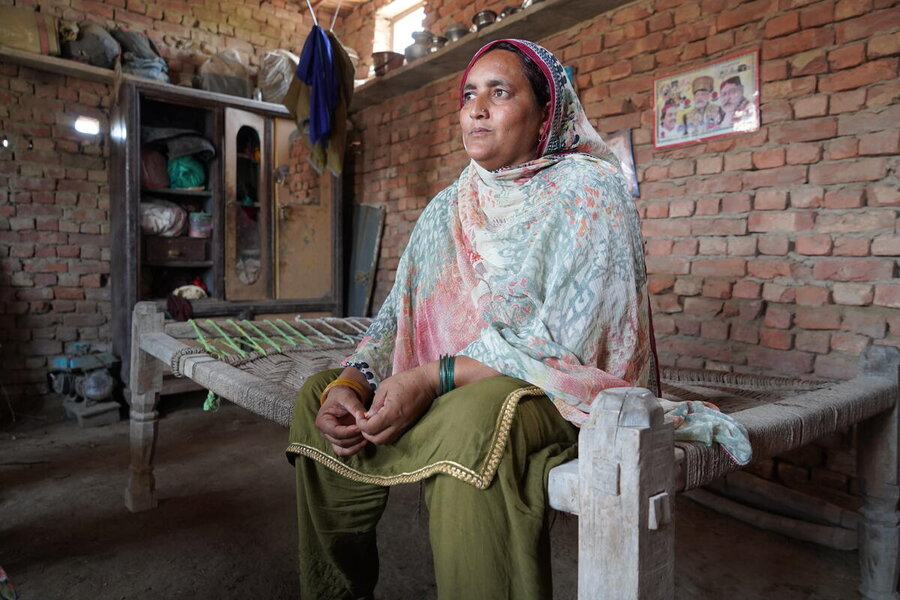
In June 2023, with humanitarian funding from the European Union, the World Food Programme (WFP) provided multi-purpose cash transfers of around US$88 per person to flood-affected families across seven districts in Sindh, enabling them to meet their basic needs.
For many, like Husan, who are struggling to get by, WFP’s cash-based support is also enough to kickstart an income-generating enterprise.
After purchasing food and covering her medical bills, she was able to use some of the cash assistance she received to buy a sewing machine that she now uses to earn a living, supporting her family and helping them get back on their feet.
“I can stitch two to three dresses daily and make 300 rupees (US$1) per dress,” says Husan.
